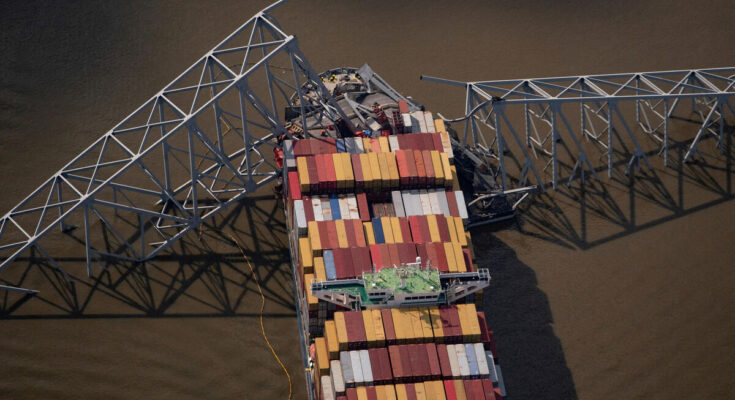More than a year and a half after the collapse of a Baltimore bridge struck by a container ship, the U.S. Transportation Safety Board (NTSB) on Tuesday concluded that the six workers killed in the crash would have had a chance of survival if they had been notified as soon as possible.
“If the workers (who works on the bridge) had been notified of the emergency at about the same time that Maryland Transportation Authority (MDTA) police officers at each end of the bridge were ordered to block vehicular traffic, they may have had enough time to drive to the section that did not collapse,” the NTSB found in its findings presented and supported on Tuesday.
Between the time these police officers were contacted and the bridge’s collapse, 1 minute and 29 seconds passed, said the organization that investigates transport accidents.
On March 26, 2024, the Singapore-flagged container ship Dali experienced a series of electrical problems and crashed into the Francis Scott Key highway bridge, collapsing like a house of cards. Six workers who were doing work on the building’s deck, all Latin American immigrants, died in the accident.
Ultimately, the NTSB determined that the “probable cause” of the accident “was a loss of electrical power, due to a loose connection resulting from a mismarked cable, resulting in loss of propulsion and steering power of the vessel in the vicinity of the bridge.”
“Lack of communication”
Added to this was the absence of a bridge vulnerability review conducted by Maryland authorities – highlighted in an earlier interim report – and “a lack of effective and immediate communication to notify workers to evacuate the bridge.” In addition, the NTSB has compiled a list of thirteen American bridges that exceed reference thresholds for the risk of collapse in the event of a collision with a ship.
These include a monumental bridge on the Chesapeake Bay, near Washington, and two bridges in Philadelphia, in the eastern part of the country, and four in New Orleans, Louisiana. Vulnerability checks are still ongoing for about thirty other bridges, the NTSB detailed.
Ahead of the findings, Maryland officials indicated that the budget to rebuild the Francis Scott Key Bridge, at between $4.3 billion and $5.2 billion, had more than doubled from initial estimates. It also announced a two-year delay to its delivery plans, set for 2030, not 2028.



